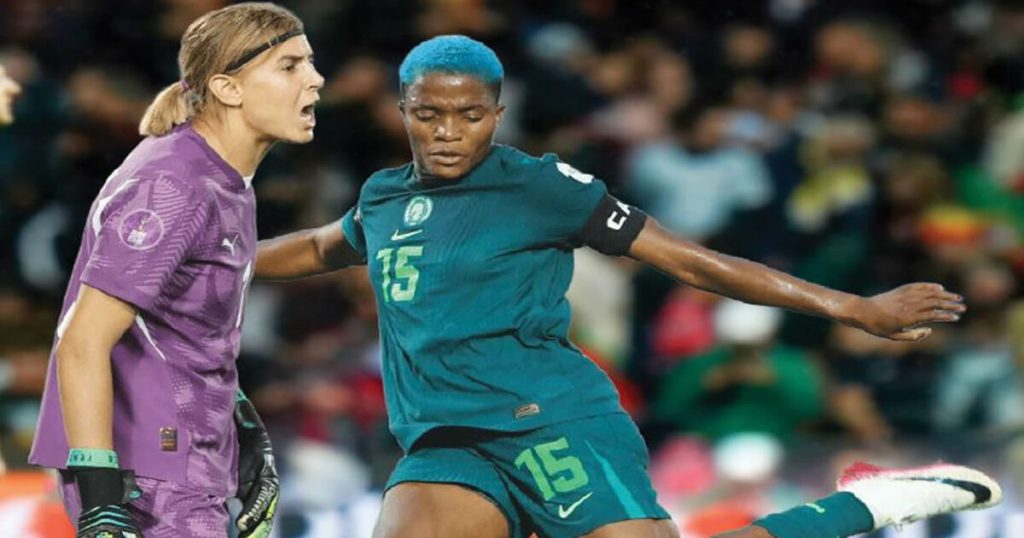The 2024 Women’s Africa Cup of Nations (WAFCON) culminated in a highly anticipated final between Nigeria and hosts Morocco at the Olympic Stadium in Rabat. The match represented a clash of styles and ambitions, with Nigeria seeking a record-extending 10th continental title, their “Mission X,” while Morocco aimed to become the first North African nation to lift the coveted trophy. Both teams entered the final unbeaten, setting the stage for a thrilling encounter.
Nigeria’s journey to the final showcased their defensive resilience, conceding only one goal, a penalty, throughout the tournament. Their semi-final victory against defending champions South Africa was a dramatic affair, decided by Michelle Alozie’s late winner. The Super Falcons demonstrated a potent attack and midfield dominance, complemented by a physical defensive line. Their scoring prowess was distributed across the squad, with nine different players finding the back of the net, highlighting their depth and versatility. Esther Okoronkwo’s intelligent build-up play proved instrumental in their attacking success.
Morocco’s path to the final was less straightforward. They faced early challenges, coming from behind twice against Zambia in their opening match. Their semi-final against Ghana also required a comeback, with Sakina Ouzraoui’s equalizer forcing a penalty shootout, which Morocco ultimately won. Despite reaching the final in the previous edition, held on home soil, their performances in 2024 had been less convincing than their 2022 campaign. A victory in the final would be a significant return on the substantial investment Morocco has made in women’s football.
The tactical battle between the two coaches was a key element of the final. Nigeria’s Justin Madugu had instilled a balanced approach in his team, blending defensive solidity with attacking flair. Morocco’s Jorge Vilda, who took charge of the team following the departure of Reynald Pedros after the World Cup, demonstrated tactical flexibility, making crucial adjustments during matches to turn the tide in their favor. The match promised a fascinating contrast of styles, pitting Nigeria’s experience and attacking depth against Morocco’s home advantage and tactical adaptability.
Key players on both sides held the potential to influence the outcome. Nigeria’s goalkeeper, Chiamaka Nnadozie, recently signed by Brighton in the Women’s Super League, had been a formidable presence, rarely tested throughout the tournament. For Morocco, goalkeeper Khadija Er-Rmichi had shown some vulnerability, while captain Ghizlane Chebbak, despite leading the tournament in goals, had faded in the knockout stages. Ibtissam Jraidi provided a cutting edge in attack for Morocco, and Sanaa Mssoudy, despite not replicating her dazzling form from the previous year’s Women’s African Champions League, remained a threat on the wing.
The final held historical significance for both teams. Nigeria aimed to solidify their dominance in African women’s football with a 10th title, a feat they had openly declared as their “Mission X.” Morocco, buoyed by home support, sought to break new ground by becoming the first North African nation to win WAFCON. The previous encounter between the two teams, a penalty shootout win for Morocco in the 2022 semi-finals, added a layer of rivalry and a desire for revenge for Nigeria. The match promised not only a thrilling contest but also a potential shift in the balance of power in African women’s football. The winner would receive a substantial $1 million prize and the newly designed WAFCON trophy, adding further incentive to the already high stakes. A victory for Morocco would not only be a historic first but could also put pressure on the Moroccan men’s team to achieve similar success.













